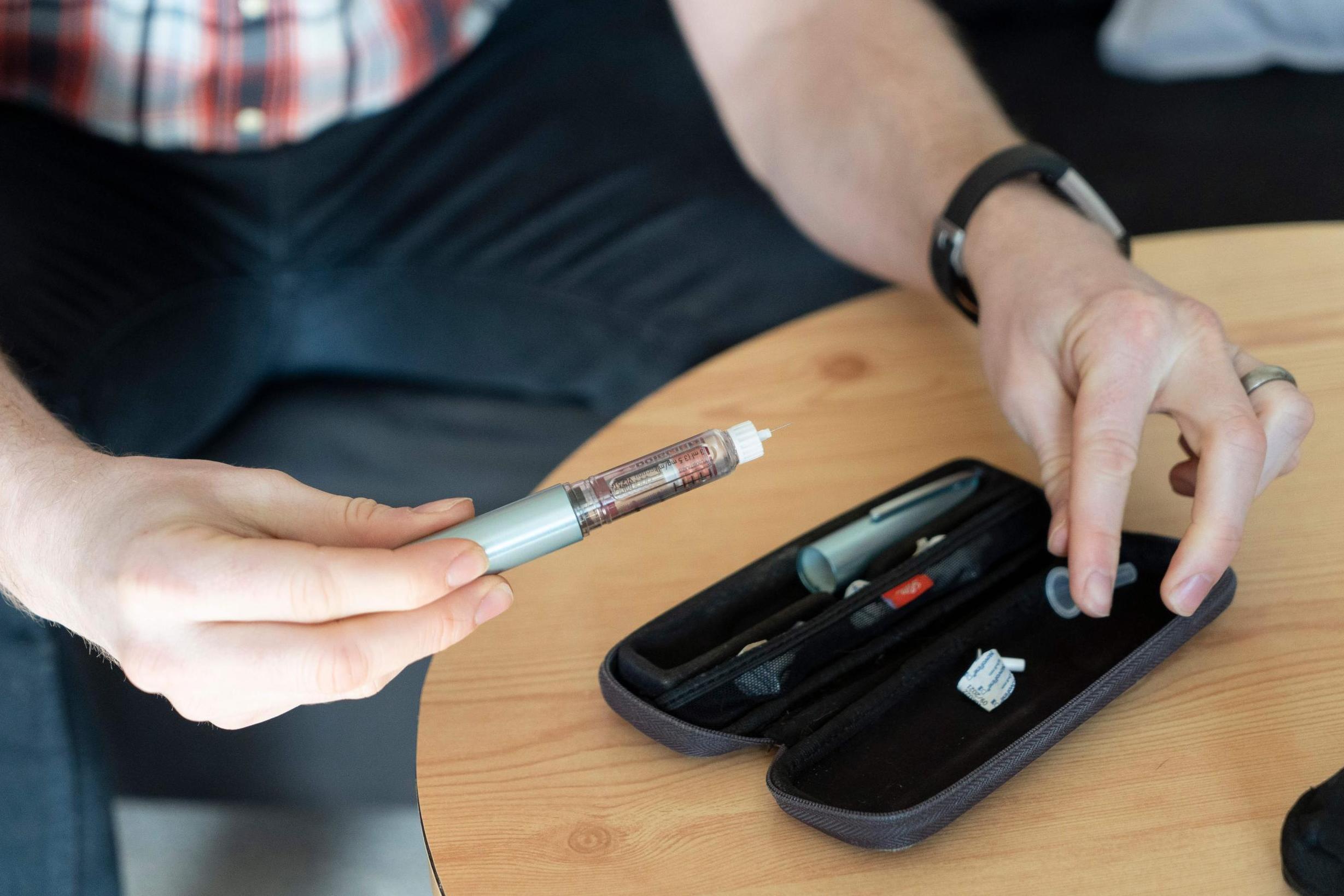Record two million people at risk of type 2 diabetes amid ‘growing obesity crisis’
Increasing numbers at threat from heart attack and strokes, NHS says

Your support helps us to tell the story
From reproductive rights to climate change to Big Tech, The Independent is on the ground when the story is developing. Whether it's investigating the financials of Elon Musk's pro-Trump PAC or producing our latest documentary, 'The A Word', which shines a light on the American women fighting for reproductive rights, we know how important it is to parse out the facts from the messaging.
At such a critical moment in US history, we need reporters on the ground. Your donation allows us to keep sending journalists to speak to both sides of the story.
The Independent is trusted by Americans across the entire political spectrum. And unlike many other quality news outlets, we choose not to lock Americans out of our reporting and analysis with paywalls. We believe quality journalism should be available to everyone, paid for by those who can afford it.
Your support makes all the difference.A record number of people are at risk of developing type 2 diabetes, increasing their chances of suffering a heart attack or stroke, the NHS has warned.
A “growing obesity crisis” has led to nearly two million people in England being exposed to the condition that causes the level of sugar in the blood to become too high.
As part of efforts to tackle the problem, a radical new liquid diet will be available on the NHS to put type 2 diabetes into remission.
Five thousand patients will be restricted to 800 calories per day for three months in a pilot to be rolled out from April.
This will be followed by a further nine months of support to help them maintain weight loss.
According to new NHS figures, there are 1,969,610 patients registered with a GP who have non-diabetic hyperglycaemia, a condition that puts people at risk of type 2 diabetes.
The health service warned the problem could become greater still due to the rise in obesity levels.
Projections indicate the growing number of diabetes sufferers could lead to 39,000 extra people suffering a heart attack in 2035 and more than 50,000 experiencing a stroke.
One in six hospital beds are now occupied by someone with diabetes, the NHS said.
The most common form of diabetes, type 2 is caused by problems with how the insulin hormone breaks down glucose in the body.
The lifelong condition can cause excessive thirst, a need to frequently urinate and tiredness.
It can also increase the risk of serious problems with eyes, heart and nerves, and is often linked to being overweight or inactive.
According to the NHS, there were over a million obesity diagnoses in hospital admissions last year, up from 884,000 the year before.
The NHS's world-first diabetes prevention programme is doubling its capacity to prevent people developing the condition.
The programme identifies people at high risk of diabetes and supports them to live healthier lives and stop or delay the onset of illness through courses that last between nine and 12 months.
It has received around half a million referrals, with patients so far losing a combined weight of 43 ambulances.
NHS chief executive Simon Stevens warned that “bulging waistlines” were leading to the rise in people living with type 2.
He added: “Unless many more of us make a change, obesity-related illnesses will end up costing hundreds of thousands more lives and billions of pounds in higher treatment costs.”
Professor Jonathan Valabhji, NHS national clinical director for obesity and diabetes, said the “stark figures” also showed the problem was not limited to the middle aged or elderly people, with about 115,000 younger people suffering type 2 or at risk of developing the condition.
Chris Askew, chief executive at Diabetes UK, said: “More than half of all cases of type 2 diabetes ? and the devastating complications it can lead to ? could be prevented or delayed by supporting people to reduce their risk by losing weight where appropriate, eating healthy food and being more active.”
PA
Join our commenting forum
Join thought-provoking conversations, follow other Independent readers and see their replies
Comments